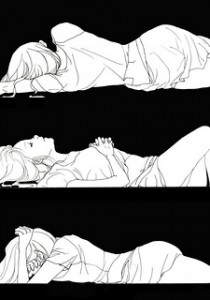It is the night before that dreaded exam; the question surely revolving within your head is whether or not to chug down a cup of coffee. If the goal is not to merely stay awake and finish reading those last few chapters but to keep your optimal level of memory up, then the following information is your key to success.

A variety of beverages contain caffeine, such as energy drinks.
Source: Daniel Jurena, Flickr
The Bad:
Caffeine has a half-life of approximately 6 hours which implies after a full 12 hour day, 25% of the original caffeine dose will still be present in your bloodstream. Depending on dose, varying levels of sleep disruption or insomnia may follow. In addition to not being able to sleep (which certainly will not aid your memory), the side of the coin people often overlook about caffeine is after its intake, as research has shown, the REM (Rapid Eye-Movement) phase and slow-wave deep sleep are affected. REM sleep is believed to be the stage of the regular sleep cycle when memory is consolidated, thus it is critical that it remains undisturbed.
The Good:
Fortunately for coffee drinkers, there is new light shed on the beneficial effects of caffeine. Recently, a study conducted by undergraduate student Daniel Borota and a research team at John Hopkins University marked the first time direct results of caffeine stimulating the improvement of memory were recorded. In the study, participants observed a series of simple everyday images including an office chair, a duck, and a saxophone. To control for variances of individuals’ conditions, all participants viewed the images first, before half of the group was given a 200mg dose of caffeine while the other half was subject to a placebo. The next day, the participants viewed another series of similar images and the group with caffeine intake the previous day was found to identify slight image differences with greater accuracy than the placebo group. This differentiation is called pattern separation in neuroscience and leads to the conclusion that caffeine does indeed enhance memory consolidation in humans.
Dr. Michael Yassa from John Hopkins University further explains the study:

There is a fine line between over-caffeinating yourself to cram for exams and taking a healthy dose of it to help with alertness. This new research shows that perhaps, the recommended amount of caffeine to optimize memory may be 200mg- just about one strong cup of coffee.
Blog post by Madeleine Tsoi





